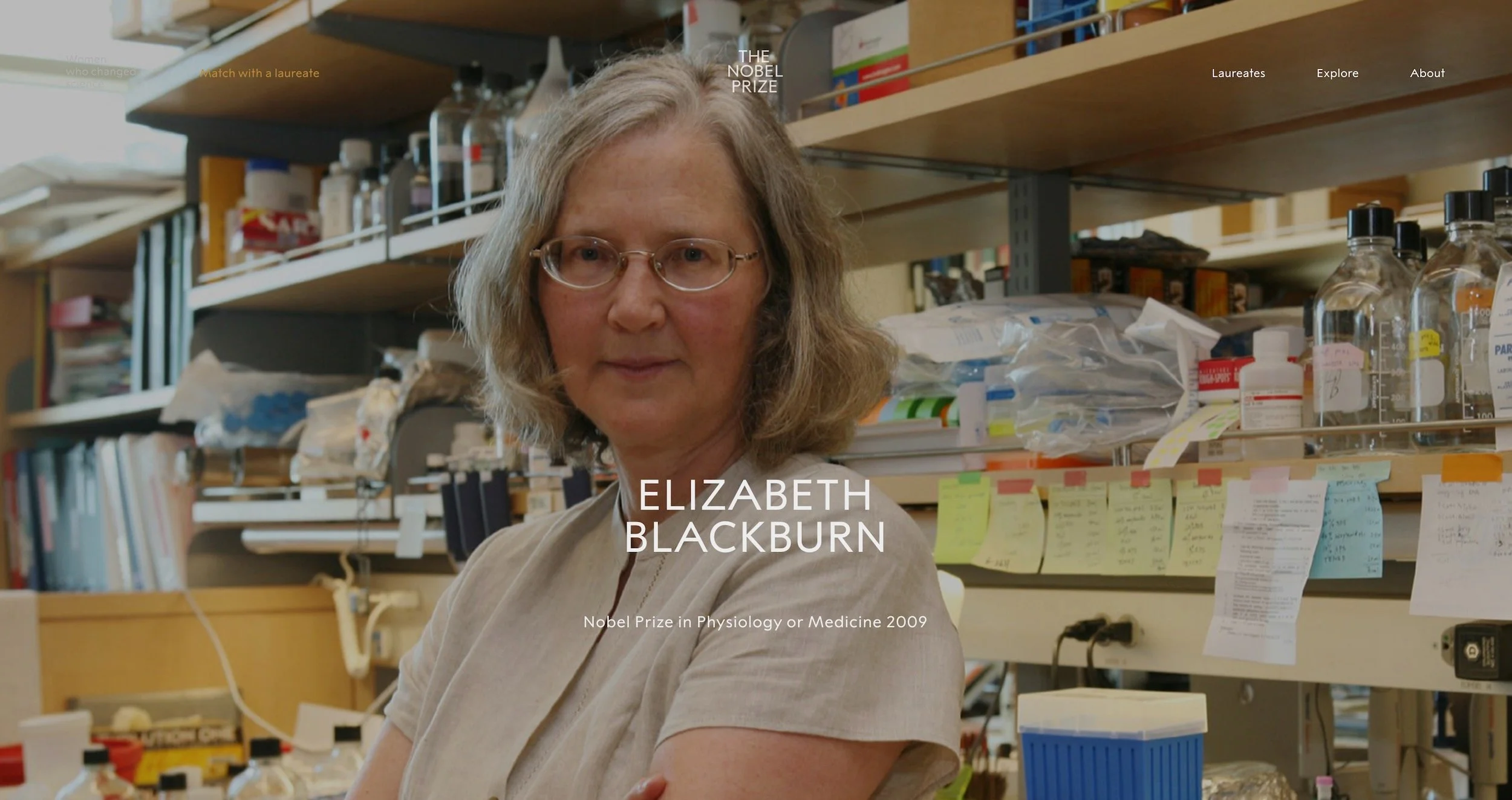Women Who Changed Science: Elizabeth Blackburn
Credit: University of California, San Francisco 2009, Photo: Elizabeth Fall/fallfoto.com
SPI Adds Nobel Prize Winning Scientist Elizabeth Blackburn to its Collection
Dr. Elizabeth Blackburn’s recording offers high school-age students a unique opportunity to learn about the human body through the lens of aging.
Elizabeth Blackburn, Ph.D., won the Nobel Prize in Physiology or Medicine in 2009 for discovering the molecular nature of telomeres, the ends of chromosomes that serve as protective caps essential for preserving genetic information, and for co-discovering telomerase, an enzyme that maintains telomere ends.
In her SPI recording, she talks about the cellular and molecular processes that underlie aging and the importance of telomeres. What are they? Why do they matter? What happens when they become worn down? And what we can do in our day-to-day lives to live longer, healthier, and stronger lives. Dr. Blackburn’s narrative has been uploaded to the SPI Learning Lab site and is an important companion recording to Dr. David Sinclair’s narrative, also found on the SPI Learning Lab site.
From the Nobel website:
Elizabeth Blackburn has evolved from a self-described “lab rat” to an explorer in the realms of health and public policy. She discovered the molecular structure of telomeres and co-discovered the enzyme telomerase, essential pieces in the puzzle of cellular division and DNA replication. Her research offers hope for cancer treatment, clues to the mystery of aging, and even biological links between life circumstance and lifespan. Wherever her curiosity leads her, Blackburn insists every conclusion be backed with data. “You have to get the science right.”
Understanding aging on a cellular level - and what we can all do to maximize our health and life span - empowers students to take control of their health and lives.
And here it is in easy-to-understand language. From the forward of her book The Telomere Effect:
With a life span of 122 years, Jeanne Calment was one of the longest-living women on record. When she was eighty-five, she took up the sport of fencing. She was still riding a bike into her triple digits…. Calment’s relish for life captures what we all want: a life that is healthy right up to the very end. Aging and death are immutable facts of life, but how we live until our last day is not. This is up to us. We can live better and more fully now and in our later years.
The relatively new field of telomere science has profound implications that can help us reach this goal. Its application can help reduce chronic disease and improve wellbeing, all the way down to our cells and all the way through our lives.
About Dr. Blackburn:
Dr. Elizabeth H. Blackburn, Morris Herztein Professor of Biology and Physiology in the Department of Biochemistry and Biophysics at the University of California, San Francisco, is a leader in the area of telomere and telomerase research.
She earned her B.Sc. (1970) and M.Sc. (1972) degrees from the University of Melbourne in Australia and her Ph.D. (1975) from the University of Cambridge in England. She did her postdoctoral work in Molecular and Cellular Biology from 1975 to 1977 at Yale.
Stay Tuned!
SPI makes its work available to all, free of charge.
Story Preservation Initiative has developed two Learning Lab projects: Our “Storytelling Learning Lab” is appropriate for students in grades Pre-K through 3, and our “Learning Lab” project is suited for students in grades 4-12, with an emphasis on grades 7-12.
Our Vision: Story Preservation Initiative believes in the transformative power of story to connect people around our common humanity and create a better future. We value generosity, diversity, inclusivity, and equity in our stories and in our outreach, exploring and illuminating the deepest levels of human potential.
Our Mission: Story Preservation Initiative is a leading producer and online distributor of original, content-rich stories for K-12 students. Our open-access stories and educational materials are used by educators around the world, engaging the hearts and minds of young people to foster curiosity, creativity, and critical thinking.
Please consider making a donation - in any amount - to help us keep the stories coming. To make a tax-deductible donation, click here.
To access SPI’s Learning Labs, go to



